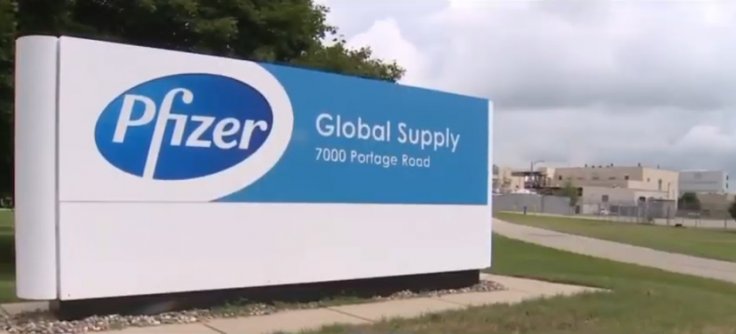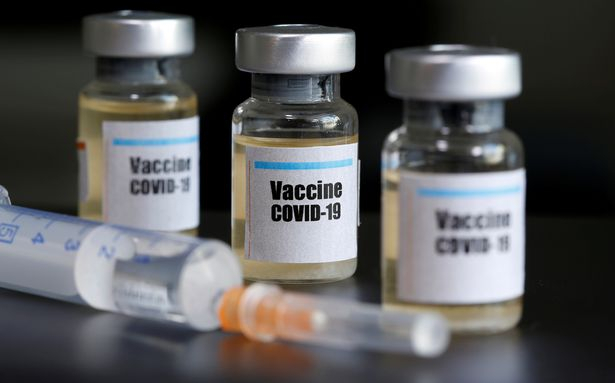Pharmaceutical giant Pfizer raised hopes of millions of people after it announced on Monday that the final-stage clinical trial of its coronavirus vaccine has so far shown positive results. Stock markets rallied and Pfizer's share price skyrocketed. However, high price and an intricate preservation process could pose roadblocks to the company's drug.
Pfizer's RNA-based vaccine, if it gets regulatory approval, could end up being an expensive vaccine that could well be beyond the reach of the poor. Further, a complex and costly system of deep-freezing from the time it is rolled out till it reaches warehouses and finally to the end-user could further escalate the price. However, despite price being a factor, Pfizer aims to roll out up to 50 million vaccine doses globally in 2020.
Challenges Galore

Pfizer on Monday said that its mRNA-based vaccine candidate, BNT162b2, has proved to be successful in preventing Covid-19 infection in 90 percent of the trial participants. This is the first interim analysis of the vaccine that was conducted when 94 confirmed Covid cases were reported. The final analysis will happen at 194 cases.
The company is also planning to apply for emergency use authorization of the drug from the Food and Drug Administration in the coming days. This definitely gives reason to be cheer, but the picture may not be that rosy. One of the biggest concerns right now is the high price of the vaccine.
Complex Process of Storage
Pfizer's vaccine involves a complex process of storage from the time it is rolled out till it reaches pharmacies and medicine stores across the globe. From deep-freezing at warehouses, to carrying them in refrigerated vehicles to finally freezing it at the vaccination centers, the vaccine reaching out to the end user faces enormous and daunting logistical challenges.
Moreover, the vaccines require freezing them at -70 degrees Celsius and should be injected within five days, or it won't be of any use. This will automatically push up the price.
Among the vaccine candidates being developed to treat coronavirus, Pfizer's price is the highest. "Pfizer's price in the US is the highest among the leading vaccine candidates, with some analysts suggesting a 60-80 percent profit margin. Neither Pfizer, nor its German partner BioNTech, has made a public commitment to sharing its Covid-19 vaccine knowledge, technology, intellectual property, data and know-how to boost supply, reduce price and enhance equity," Niko Lusiani, Senior Advisor with Oxfam America, said in a statement.
How Expensive Could Be the Vaccine?

Governments across the world have been assuring their citizens that if a vaccine gets developed, the aim will be to vaccinate the maximum possible people. However, price may play spoilsport particularly for Pfizer's vaccine, more so because it is so far leading the vaccine race.
Although mRNA vaccines are thought to be relatively safe, they are usually costlier. And much like Moderna, Pfizer's vaccine too is a mRNA candidate. But a different challenge lies here.
There is no vaccine present currently that has ever been made from the messenger RNA technology, which instructs the human body to produce proteins that then develop protective antibodies. So countries procuring the vaccine need to start from scratch by building deep-freeze production system, storage and transportation networks, so that the vaccine survives, at least for five days.
Massive Investment
So it involves massive amounts of investments and ensures that only rich countries will be able to build such a network and only the rich will be able to afford it. This gives rise to another fear that the vaccine will first reach the rich nations and even a government subsidy can't possibly make up for the cost.
As for the governments, there is a new dilemma now that of whether to pay for the expensive construction of subzero cold-chain infrastructure to store the vaccine shots or to wait for a less expensive vaccine one.
However, even for rich countries that have pre-ordered doses, including Japan, the United States and the UK, delivering Pfizer's vaccine will involve a lot of hurdles as long as trucks break down, electricity cuts out, essential workers get sick and ice melts. These countries definitely need to be more accurate with this logistical challenge. And for developing nations, a vaccine for each and every citizen still seems to be a distant dream.









